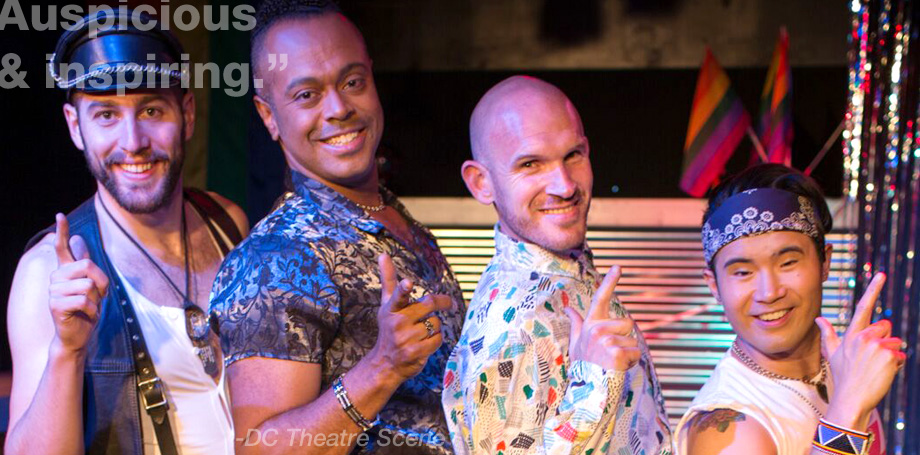Everything Old is New Again: Tom Wilson Weinberg’s Get Used to It!
Before Orlando, this show meant something different. Before that tragedy, a mere two weeks ago — just two days after Rainbow Theatre Project opened Get Used to It! — it would have been easy to think of this 20-song revue as a quaint history lesson, a peek back at the political fights and personal communities of gay men in 1993 when AIDS was raging, Ellen was not yet out, and Don’t Ask Don't Tell was freshly instituted.
Now, however, the view into the past is fractured. Tom Wilson Weinberg's Cole Porter/Stephen Schwartz-esque song cycle, written in the early 90s, is being presented to us right here, right now by three singers and a pianist. Do we take it as a review of how far we've come, or a reminder that the battles of last century are far from done? Is the church-and-state satire of 'Hymn' outdated because the terms it puts its conflict in are outdated, or is it painfully relevant because the conflict itself continues? Is the out-and-proud tenderness of 'Three-Letter Word' made bittersweet because its innocence is lost, or is it made bold because it testifies to what is universal across time?"
—Brett Steven Abelman, June 20, 2016, DC Theatre Scene
wo musical revues I wrote in the late 1980s and early 90s, Get Used to It! and Ten Percent Revue, had good runs in New York and a generous number of productions around the country. They attracted attention in the mainstream and LGBT press and won a few honors along the way.
The intention of both shows was to present a view of LGBT life and politics with humor, satire and urgency. I was influenced not by creators of musical theater but rather by gay and lesbian activists. The moment was dire. Conservative political and religious institutions fought to strip us of what few rights we had gained in the 1970s. And our friends were dying of AIDS.
Last spring one of the revues, Get Used to It!, was revived by a theater in Washington, DC. I had met with the director about a year before the show was cast, expecting him to share my view that the shows were now nostalgia pieces, quaint histories of LGBT life 25 or 30 years ago.
He thought they were still potent, funny and dramatic. He acknowledged that some of the references were dated but didn’t want me to change a word. (A few times over the years producers have inquired about revised and updated versions which I’ve politely declined.) He felt that if audiences were stirred by the history that would be enough, and if they found it topical, relevant and moving, that would be what he hoped for and expected.
Two reviews published early in the run confirmed this director’s instincts. Both wrote of the shows as if they were new. Then, in the second week of the run, the killings at Pulse nightclub occurred. Shocked, as were people all over the country, I asked him if he wanted to acknowledge the tragedy from the stage. He wasn’t enthusiastic about the idea. Later that week, I went to Washington, saw the show (okay, three times) and realized it had addressed Orlando as written 25 years earlier.
After seeing it for the first time I met the cast and realized how brave they were despite the challenge of going on stage with the tragedy fresh in their minds. These young actor/singers could have been blasé after nearly eight years of acceptance and support from Barack Obama and his administration. Orlando changed that. Their commitment to the material reminded me of the passionate, confrontational and funny way it was sung in the early 90s.
Now we find ourselves in a dire place once again, something I didn’t imagine during the run of Get Used To It! in Washington. I couldn’t picture an election result or an administration that would attempt to define itself by limiting human rights in the name of making America great again.
Like so many progressive people here and around the world, I mourned, lost sleep, felt depressed, then angry and finally energized. The process took a few months. Now I’m writing letters and calling legislators, demonstrating, picketing and going to meetings to help build coalitions and stand up to the new reality that faces us. And I’m writing songs.
